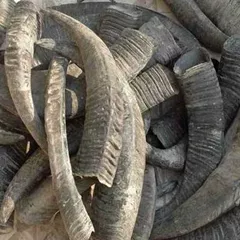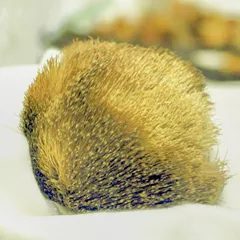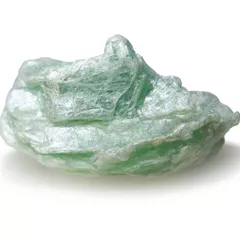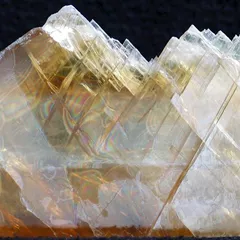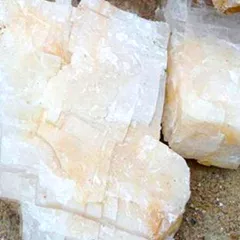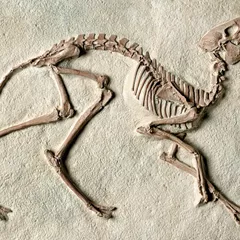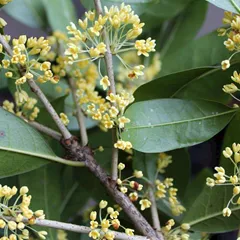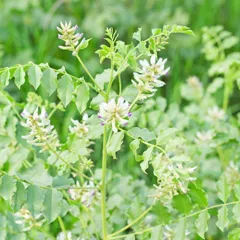Han Shui Shi
Han Shui Shi
English: Calcitum
Chinese: 寒水石
Use of Han Shui Shi (calcitum) in TCM
Please note that you should never self-prescribe TCM ingredients. A TCM ingredient is almost never eaten on its own but as part of a formula containing several ingredients that act together. Please consult a professional TCM practitioner, they will be best able to guide you.
Preparation: Crush to power before using
Dosage: 9-30g
Main actions according to TCM*: Clears Heat and drains Fire. Expels Summer-Heat. Cools Hot sores and burns. Reduces edema.
Primary conditions or symptoms for which Han Shui Shi may be prescribed by TCM doctors*: Fever Excessive thirst Irritability Sores Mouth ulcers Burns Edema
Common TCM formulas in which Han Shui Shi is used*
Zi Xue Dan
Source date: 752 AD
Number of ingredients: 17 herbs
Formula key actions: Clears Heat. Opens the sensory orifices. Controls spasms and convulsions. Extinguishes Wind.
Conditions targeted*: Acute encephalitisAcute meningitis and others
Han Shui Shi is a deputy ingredient in Zi Xue Dan. This means it helps the king ingredient(s) treat the main pattern or it serves to treat a coexisting pattern.
In Zi Xue Dan, Han Shui Shi clears Heat and drains Fire to eliminate irritability and alleviate thirst.
Gui Ling Gan Lu Yin
Source date: 1172 AD
Number of ingredients: 9 herbs
Formula key actions: Expels Summerheat. Clears Heat. Transforms Qi. Removes Dampness .
Conditions targeted*: Acute gastroenteritisCholera and others
Han Shui Shi is a deputy ingredient in Gui Ling Gan Lu Yin. This means it helps the king ingredient(s) treat the main pattern or it serves to treat a coexisting pattern.
In Gui Ling Gan Lu Yin, Han Shui Shi is acrid and cooling and strengthens the Heat-clearing action of the formula.
Together, the three minerals in the formula develop a downward directing action that promotes unblocking of the Triple Burner.
Unlike bitter, cooling herbs, the sweet and salty flavor of these minerals does not dry the Body Fluids or constrain the Qi.
Feng Yin Tang
Source date: 220 AD
Number of ingredients: 12 herbs
Formula key actions: Extinguishes and pacifies Wind with heavy medicinals. Calms the Mind. Clears Heat.
Conditions targeted*: EpilepsyStroke and others
Han Shui Shi is an assistant ingredient in Feng Yin Tang. This means that it either serves to reinforces the effect of other ingredients or it moderates their toxicity.
In Feng Yin Tang, Han Shui Shi is a cooling mineral substance that clear the Fire and heat.
Key TCM concepts behind Han Shui Shi's properties
In Traditional Chinese Medicine (TCM), Han Shui Shi belongs to the 'Herbs that clear Heat and purge Fire and/or clear Summer Heat' category. Herbs in this category are used to clear inflammatory and infectious conditions, referred to as 'Internal Heat' in TCM. This is why most of the herbs in this category will have both antibacterial and antiviral properties. In TCM one has too much 'Internal Heat' in their body as a result of a deficiency of 'Yin' (which is Cold in nature, see our explanation on Yin and Yang) or, more commonly, an Excess of Yang (Hot in nature). Herbs that clear Heat and purge Fire treat the latter and as such tend to be Cold or Neutral in nature.
As suggested by its category Han Shui Shi is Cold in nature. This means that Han Shui Shi typically helps people who have too much 'Heat' in their body. Balance between Yin and Yang is a key health concept in TCM. Those who have too much Heat in their body are said to either have a Yang Excess (because Yang is Hot in nature) or a Yin deficiency (Yin is Cold in Nature). Depending on your condition Han Shui Shi can help restore a harmonious balance between Yin and Yang.
Han Shui Shi also tastes Pungent and Salty. The so-called 'Five Phases' theory in Chinese Medicine states that the taste of TCM ingredients is a key determinant of their action in the body. Pungent ingredients like Han Shui Shi tends to promote the circulations of Qi and Body Fluids. That's why for instance someone tends to sweat a lot when they eat spicy/pungent food. On the other hand Salty ingredients tend to have a draining effect in the body because they clear accumulations, remove Phlegm and soften hard lumps.
The tastes of ingredients in TCM also determine what Organs and Meridians they target. As such Han Shui Shi is thought to target the Heart and the Kidney. In addition to regulating Blood flow, in TCM the Heart is believed to be the store of the 'Mind' which basically refers to someone's vitality. The Kidneys do not only regulate the urinary system but also play a key role in the reproductive system and the growth and aging process of the body.



